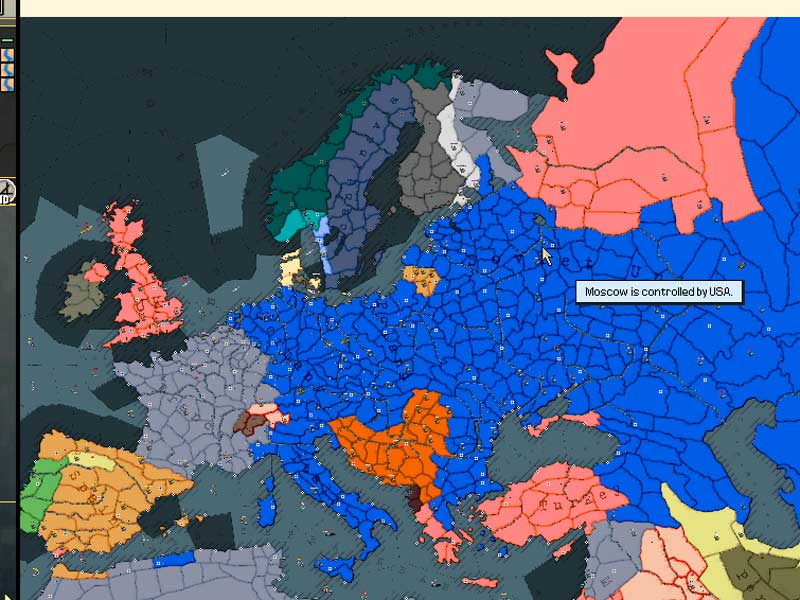Civil War - Slavery
Was the Civil War about slavery? Many say it wasn't. I say it was. Here is why...
The election was in 1860. It was the election that caused the Civil War. The Republicans campaigned on Abolition. South Carolina withdrew from the Union right about the time that Lincoln came into office. It was a very immediate cause and effect. The rest of the southern states withdrew shortly thereafter. Without slavery, there would have been no war and nothing to fight over. The Southerners who argue "states' rights" conveniently overlook that the right, or rather freedom, they wanted was the freedom to enslave. There is no other way around it. However, not all southerners owned slaves. In fact few did. Then again, they aren't the ones who voted to go to war or to succeed from the Union of this great nation. Everything that anyone to attribute as a cause of the Civil War can think of derives from slavery. There is no cause for the Civil War other than slavery.
The tariffs were a huge issue in 1828 and for some time after that. There were two primary tariff acts were the Tariff Acts of 1828 and 1832. A compromise - the Compromise Tariff - was worked out in 1833 that reduced or phased the tariffs out by 1842, at which point the Southerners claimed victory. I don't see any issues with tariffs between 1842 and 1860. And tariffs don't appear to have been mentioned as a key issue and perhaps not at all in the 1860 elections.
It is interesting how Southern leaders who could trivialize on imperfections of the Constitution could be so inconsistent themselves. They had no problems with printing money, for instance, though there is nothing in the Constitution about printing money (only coining was allowed by this great document). They had 10% of tax in kind in addition to income taxes (compared with only 3% for the north and none prior to the start of the war).
The only thing that Lincoln was doing differently from other Presidents is that he was anti-slavery and talked about freedom for all men. No other President had ever done that in the history of our nation though Jefferson came close, I suppose. Lincoln was from a new party - the Republican Party - whose platform was about freedom and abolition and anti-slavery. That was what defined this party. Through the famous Lincoln - Douglas debates (both sets), Lincoln kept hammering at the issue of slavery. The Southern states had many years to succeed over tariffs or so-called "State's Rights" (to own slaves), but they never did. Lincoln gets elected President, the first one from a new anti-slavery party and within five or six weeks, before he even takes office, South Carolina succeeds. Before he takes office, another four or five states succeed.
Nat Turner was not about tariffs, but slavery.
Dred Scott was not about tariffs, but slavery.
Uncle Tom's Cabin was not about tariffs, but slavery.
John Brown was not about tariffs, but slavery.
The Republican Party was not about tariffs, but slavery.
Abraham Lincoln was not about tariffs, but slavery.
That African Americans were not free men was not about tariffs, but slavery.
I have only been able to find four of the Declarations of Causes of Succession of the southern states. I haven't been able to find any of the others yet. But of the four I have seen*, not a single one uses the words "States Rights" (or "State's Rights" or "States' Rights") EVEN ONCE. Not a single one uses "tariff" or "tariffs" EVEN ONCE. However, the word "slave" and variations thereof ("slaves", etc.) is used an astounding 82 times. These Declarations are the official reasons that the states left their country. They have not been written by anyone seeking to revise history. They are the official direct "for the record" words of those traitors who did this to the United States of America. The winners did not write the history books; the rebels did.
Of course Lincoln wanted to preserve the Union first and foremost. Who wouldn't? If you have cancer rampant through your body, but then suffer a potentially fatal heart attack, you address the heart attack problem first since it won't do you any good otherwise. Of course, what most people forget about the famous "If I could save the Union without freeing any slave, I would do it - If I could save it by freeing all the slaves, I would do it - and if I could do it by freeing some and leaving others alone, I would also do that" is that his letter to Horace Greeley ends with "I have stated my purpose according to my views of official duty; and I intend no modification of my oft-expressed personal wish that all men everywhere could be free."
Also while the Emancipation Proclamation only freed slaves in the parts of the Confederacy still controlled by Confederates, that was about the only place it needed to apply to. The rest of the nation - the northern states, the new territories, and the parts of the Confederacy already liberated by the United States already had emancipated pretty much anyone who would have been a slave. (I believe there are a few exceptions, but can't find those with any exactitude right now.) So the Emancipation Proclamation did what it needed to do: free those who were still enslaved.
"Four score and seven years ago our fathers brought forth on this continent a new nation, conceived in Liberty, and dedicated to the proposition that all men are created equal..." - Abraham Lincoln, The Gettysburg Address
Civil War Links
- Monitor and Merrimack, day 1
- Monitor and Merrimack, day 2
- Slavery Caused the Civil War
- More Civil War Causes
- Civil War Declarations of Causes of Succession of the southern states

 Home
Home Hearts of Iron
Hearts of Iron








 French Military Victories...
French Military Victories...